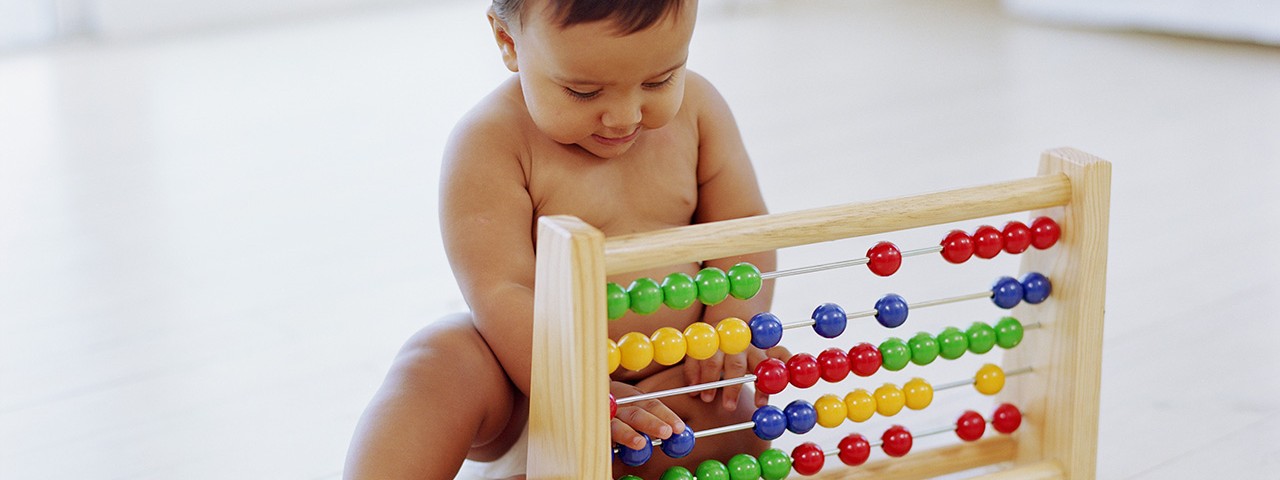Kindergarten Readiness Is More Than Academic
- Tweet

A recent newspaper headline heralded budget meetings between the Shelby County Board of Commissioners and Shelby County Schools officials, but the real headline for us was at the bottom of the story: Board Chairman Kevin Woods said “67% of our children entering kindergarten are not performing at grade level.”
He also said 60% of third graders cannot read on grade level and 62% of seventh graders perform poorly in math.
It was a compelling reminder about how a child’s early experiences – beginning long before school entry – play a role in preparing him for kindergarten. Woods’ comment also underlined the fact that once children fall behind, it’s likely they may not catch up.
Success in Self-Control
There is no debate that the foundation for kindergarten readiness is emotional and social development. Research shows that social and emotional skills are at least as important as early cognitive skills for children to make a successful transition into school.
A growing body of research suggests that the cornerstone of social and emotional development is self-control. The process starts early: infants are acquiring basic skills called emotional regulation that lay the groundwork for the self-control they’ll master in the next few years.
A newborn’s brain has more than 100 billion brain cells and before a child is three years old, those cells have rapidly formed about 1,000 trillion connections (that’s 1 followed by 12 zeros). In those first three years, the brain is more active than it will ever be again.
That’s why it’s so important that the early years are anchored in a warm, trusting environment. Sensitive parenting and other positive experiences promote children’s self-control and prepare them for success in school and beyond.
Kindergarten teachers report that children with self-control are better able to pay attention, follow instructions, stay in their seats and focus on the task at hand. They’re generally more confident, more eager to learn, and more willing to try new things. By contrast, for children with lower self-control, school can be a place where they struggle to fit in, make friends, and meet teacher expectations.
Early self-control skills have been linked to physical health, social adjustment, and achievement and income throughout life.
#SelfControl is the skill kids need most to succeed in school and life.Tweet This!Tips for Parents Encouraging Self-Control
So, what do pediatricians say parents and caregivers can do to encourage self-control?
Touch, Talk, Read, and Play with your baby.
- Praise positive behavior: “Thank you for being so patient while we waited for the swing in the playground.”
- Be sure your expectations match your child’s social and emotional maturity. For example, don’t expect an 18-month-old to share toys.
- Model appropriate behavior for your child. Every child’s most powerful teacher is her parents, so make sure that when your child emulates your behavior, it’s something you will be proud of.
- During the toddler period, when children’s behavior can often be challenging, using appropriate discipline is especially important for the development of self-control.
- Set limits and routines, but have realistic expectations. Many defiant behaviors are a part of normal development. Your child is learning through experience how to relate to others and cope with conflict.
- Research shows that harsh discipline does not improve self-control, and often appears to reduce it. Try to use strategies based on reasoning and respect for your child’s autonomy.
- If your child’s tantrums become frequent and extreme, or if there are other behaviors that concern you, consult with your pediatrician.
Acting on Our Responsibilities
It is inarguable that dramatic development takes place in the first three years of life – a helpless newborn is transformed into a three-year-old who walks, talks, solves problems, manages relationships, and knows right from wrong. Because these years are a time of incredible growth – as well as vulnerability – they’re also an incredible opportunity to give children a fair start in life. All of us who care about our community’s future share responsibility for making sure every child has access to experiences that promote social and emotional development, foster self-control, and help them grow, thrive and succeed.
